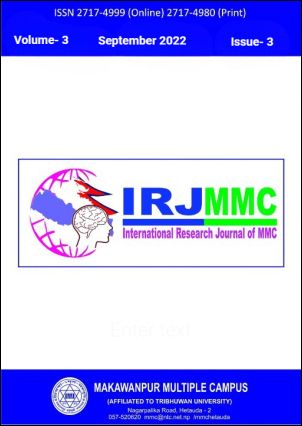Some Philosophical Paradigms and their Implications in Health Research: A Critical Analysis
DOI:
https://doi.org/10.3126/irjmmc.v3i3.48627Keywords:
Criticalism, Interpretivism, Positivism, Post-modernism, post-positivism, Research paradigmAbstract
There are five common philosophical paradigms used in the research and they are: Positivism, Post- Positivism, Interpretivism, Criticalism and Post modernism. Each paradigm has different research methods and analyses. The aim of this paper is to reveal the philosophical underpinning of Positivism, Post- Positivism, Interpretivism, Criticalism and Post modernism paradigms in health education research. In this review, each paradigm has been explained properly with reference to health education research based on the literature reviews available in peer-reviewed academic articles and books. This paper helps researcher especially health education researcher to identify paradigm and their implication in health education. Positivism is a science-based empirical method which yields singular reality used in scientific research. Post-positivism deal with multiple reality which asserts that every theory is revisable and that is used in social science especially in quantitative research. Interpretivism is the study of social phenomena to find out the hidden reality which is within the society and it is one of the main philosophies of qualitative research. Criticalism is considered one of the best methods to use in health education research to liberate people from social injustices through consciousness gained through health education. Post-modernism rejects the all-existing assumptions, beliefs and values and give an emphasis on qualitative research method that is appropriate to carry out the research study.

